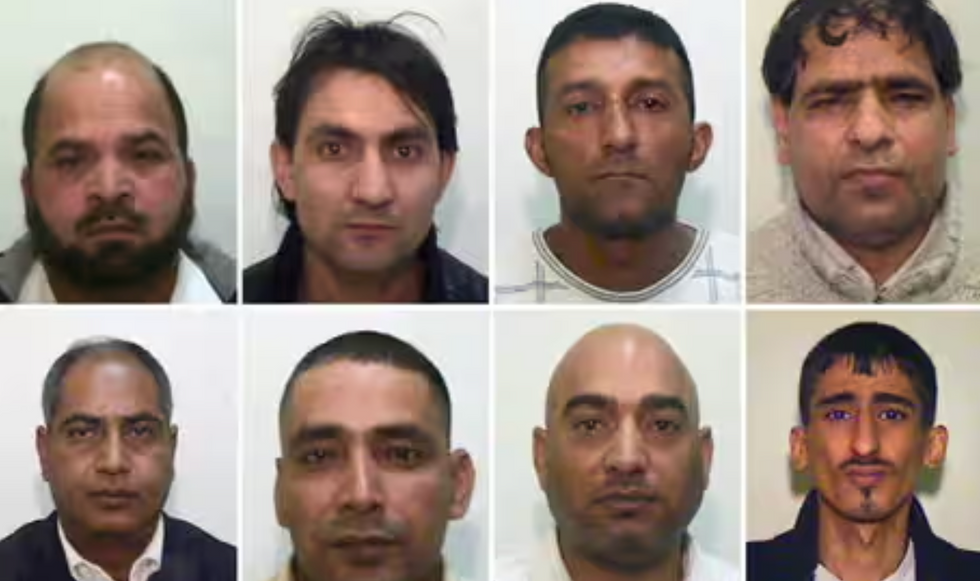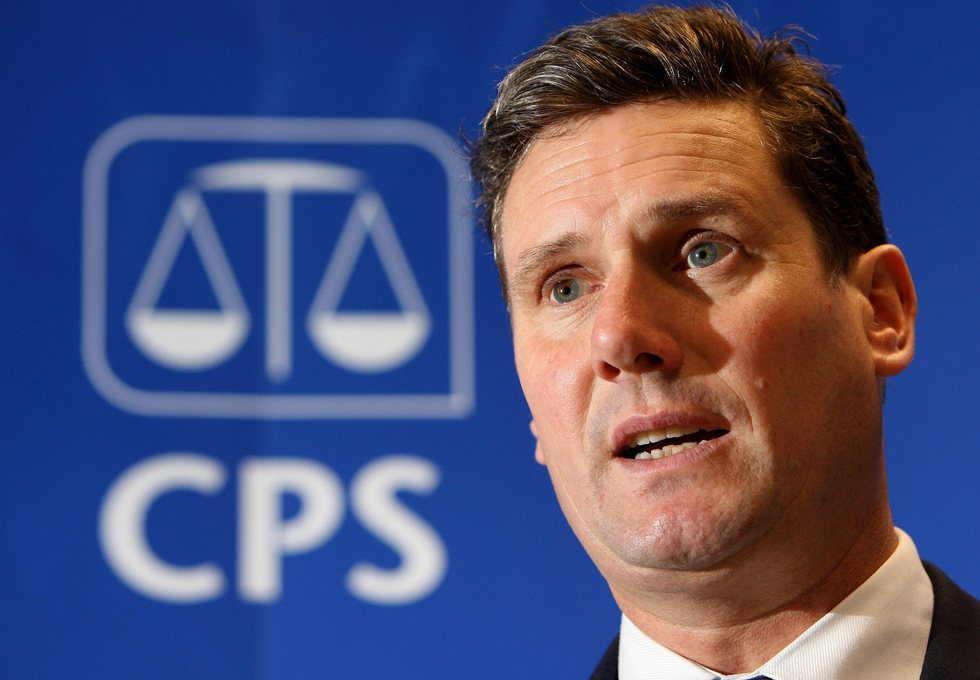The Crown Prosecution Service, under Sir Keir Starmer’s leadership, failed to prosecute nine men who later received heavy jail sentences for their part in a child sexual exploitation gang. Starmer was not personally involved in the decision.
Following their convictions in 2012, the then director of public prosecutions (DPP) acknowledged the authorities had let down the child victims and failed to bring justice to the perpetrators in the grooming gang cases, including the Rochdale scandal, stating: “What’s now emerged, through the work you’re doing, is a recognition that if you look at all these cases you’ve got a category that has not been well-treated over the years by the criminal justice system.”
He also conceded that the ethnicity of the perpetrators had played a role in how these cases were historically approached by the CPS and criticised the flawed process by which the strength of a case was traditionally assessed, leading to prosecutors wrongly ruling that there was insufficient evidence due to perceived victim credibility issues.
The decision to drop the Rochdale case in 2009 came from the CPS after an assessment showed the victim’s credibility to be insufficient for a successful prosecution, a decision that was later overturned by then chief crown prosecutor for north-west England Nazir Afzal in 2011.
Afzal admitted that he took “an immediate decision” to prosecute upon reviewing the case, saying at the time: “I viewed six hours of video testimony from the girl and also had DNA evidence, but the decision was made that she would not be viewed as a credible witness by a jury.”
He later stated that he would have charged the men even if the only evidence available had been that which led to the original case being dropped.
Although Afzal criticised the initial decision not to prosecute, he attributed this to incompetence rather than sensitivity to multiculturalism. He rejected the accusation that political correctness let the child victims down.
He also clarified that Starmer was not personally involved in the decision not to prosecute the Rochdale case in 2009.
The former Chief Crown Prosecutor has said that once he brought the case to Starmer’s attention in 2011, he was supportive, noting: “Keir was immensely supportive when I first brought concerns about the systematic abuse to him and then helped to instigate a change in attitudes to the case.”

Nine men were convicted for the abuse of this and other vulnerable girls in Rochdale
Greater Manchester Police/PA
Rochdale grooming gang case timeline
August 2008
A teenage girl, referred to as Girl A, was arrested after causing a disturbance at a takeaway restaurant in Heywood, Rochdale.
During her arrest, she discloses that she had been systematically abused and raped by a group of men associated with the takeaway.
Greater Manchester Police (GMP) begin investigating. Two men, including Shabir Ahmed and Kabeer Hassan, are arrested on suspicion of rape. DNA evidence from the girl’s underwear links one of the suspects to the crime.
July 2009
The CPS reviews the case and decides that Girl A would not be viewed as a credible witness by a jury, leading to the decision not to prosecute and the case is dropped.
May 2010
After continued concerns raised by social workers and health professionals, particularly by Sara Rowbotham, who had made 181 referrals about potential victims, the police re-evaluate their approach. GMP launches Operation Span to investigate further allegations of grooming and sexual exploitation in Rochdale.
Summer 2011
Nazir Afzal, the newly-appointed Chief Crown Prosecutor for the North West, reviews the case file of Girl A and decided to prosecute, reversing the earlier decision. This led to the identification and charging of ten men in June 2011.
January 2012
The trial began at Liverpool Crown Court.
May 2012
Nine men are convicted after a 10-week trial, on a range of charges including rape, trafficking for sexual exploitation, and conspiracy to engage in sexual activity with a child. Here are the full list of convictions:

As the then DPP, Starmer conceded that the ethnicity of the perpetrators had played a role in how these cases were historically approached by the CPS
Getty Images
The aftermath
Following the trial, Greater Manchester Police issued an apology for failing to investigate earlier allegations thoroughly.
The Rochdale Borough Safeguarding Children Board published a report acknowledging that social workers, police, and prosecutors had missed opportunities to stop the abuse.
The Home Affairs Select Committee published a report on child sexual exploitation, focusing on Rochdale among other areas, criticising the handling by police, social services, and the CPS.
The CPS issued an apology for the initial failure to prosecute in 2009, acknowledging that they had not treated one of the victims as a credible witness.
As DPP at the time, Starmer ordered a national review into CPS’s handling of child sexual exploitation cases. This review aimed to understand why cases like Rochdale had not been prosecuted earlier and to prevent future similar failures.
Following the review, the CPS introduced new guidelines for prosecutors dealing with child sexual exploitation. These guidelines focused on believing the victim first and then conducting the investigation, rather than assessing the victim’s credibility from the outset. This was a significant shift in policy.
The CPS committed to providing better support for victims, ensuring they were treated with more sensitivity and their needs were addressed throughout legal proceedings. This included working with victim support services to improve communication and support mechanisms.
Last year, a comprehensive review commissioned by Greater Manchester Mayor Andy Burnham, found that from 2004 to 2013, there was “compelling evidence” of widespread abuse, with at least 74 children exploited and significant failures by police and council in protecting them. This review identified 96 men still deemed a potential risk to children.